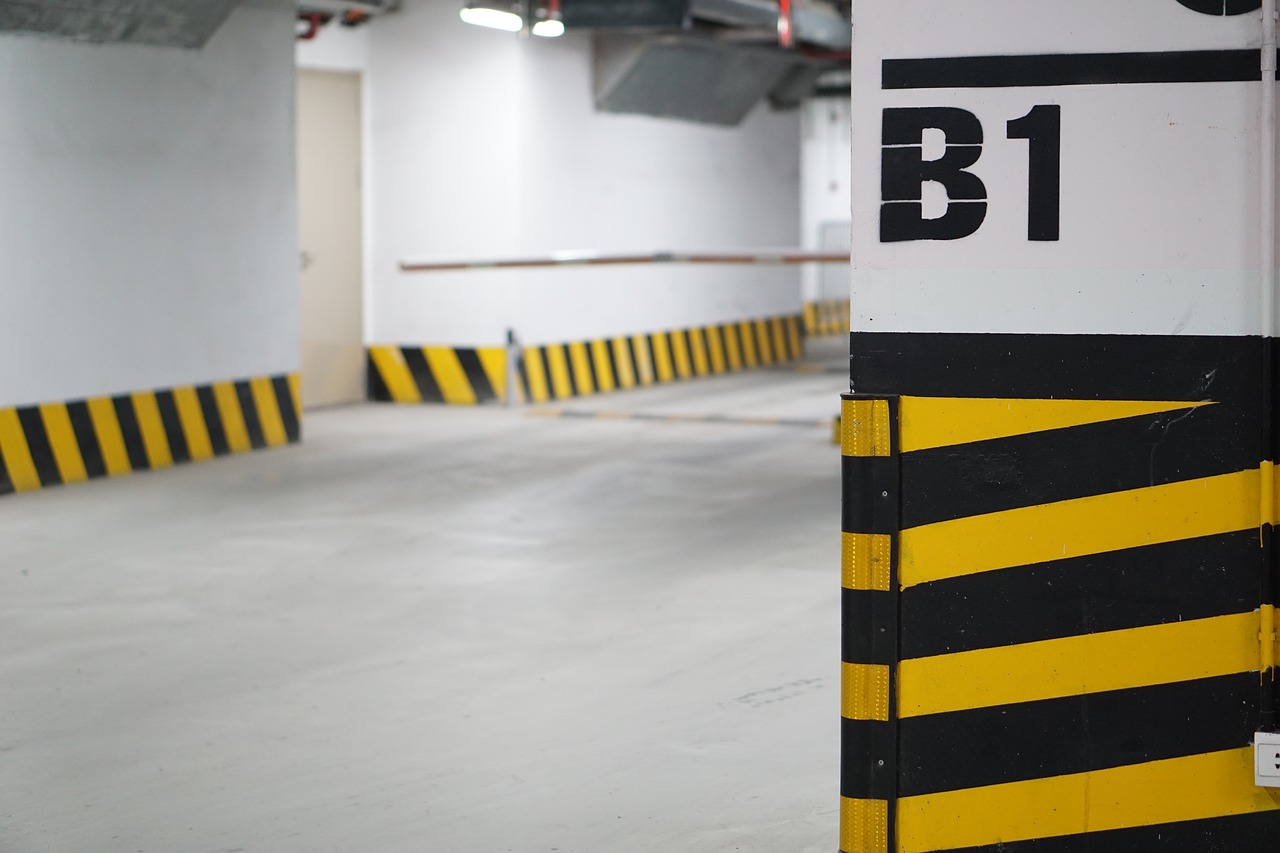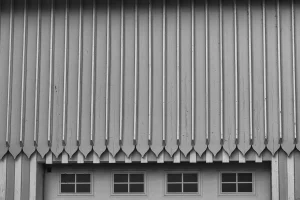acf domain was triggered too early. This is usually an indicator for some code in the plugin or theme running too early. Translations should be loaded at the init action or later. Please see Debugging in WordPress for more information. (This message was added in version 6.7.0.) in /www/wwwroot/leadcont.com/blog/wp-includes/functions.php on line 613117950 NW 53rd Street Suite 337
Miami, Florida 33166

How often should I perform maintenance on my garage door to avoid problems?What are the signs that my garage door springs need to be replaced?Can I repair my garage door myself, or should I hire a professional technician?
If you’ve ever found yourself asking, “Why won’t my garage door open?” you’re not alone. It’s a frustrating experience that many homeowners face at one point or another. A malfunctioning garage door can disrupt your daily routine, especially when it happens at the most inconvenient times. Whether it’s stuck halfway or won’t budge at all, understanding the common causes behind garage door problems can help you troubleshoot and decide whether a simple fix or professional repair is needed. In this blog, we’ll explore some of the most frequent reasons your garage door might not be opening and provide tips for resolving these issues effectively.
If your garage door remote isn’t working, it can be incredibly frustrating. However, several common issues can cause this, and troubleshooting them can be simple.
Dead Batteries: One of the most frequent reasons a garage door remote stops working is dead or weak batteries. If your remote isn’t responding, try replacing the batteries first. Even if the batteries seem fine, they may not have enough power or could be poorly connected. Make sure to use fresh, high-quality batteries and insert them correctly. After replacing the batteries, test the remote to see if it operates the door.
Signal Interference: Many household electronics, such as Wi-Fi routers, security cameras, cordless phones, and microwave ovens, can interfere with the garage door remote’s signal. These devices may disrupt the radio frequencies used by the opener. If any of these items are near the garage opener, move them further away to reduce interference. Additionally, consider whether recent changes in your home’s electronics setup could be affecting the signal.
Programming Issues: Sometimes, the remote loses its connection to the garage door opener. This could happen if it becomes unpaired or loses communication over time. To fix this, try reprogramming the remote. Most modern openers allow you to re-sync the remote by pressing a button on the opener and following a series of steps. Check your opener’s manual or look for online video tutorials for guidance.
Broken Remote: If you’ve replaced the batteries, eliminated interference, and reprogrammed the remote with no success, it could be a sign that the remote is broken. In this case, you may need to repair or replace it.
When your garage door simply won’t budge, several issues could be at play:
Broken Springs: The torsion or extension springs on your garage door are responsible for lifting the heavy door. If they snap, the door can’t open. You’ll likely hear a loud bang when the spring breaks.
Faulty Cables: The cables on your garage door help distribute weight and tension. If a cable snaps, it can prevent the door from operating properly.
Obstructed Tracks: If something is blocking the track or it’s misaligned, the door won’t move. Dirt, debris, or even bent tracks can cause the door to stop functioning.
When a garage door is out of balance, it won’t move smoothly or could even get stuck halfway. Common causes for this include:
Worn-Out Springs: If one spring is stretched more than the other, it can throw the door off-balance.
Worn Rollers or Tracks: Over time, rollers and tracks can wear out, causing misalignment. This puts undue pressure on the system and prevents smooth operation.
If your garage door opens a little but then stops, it could be due to:
Sensor Issues: The garage door opener has safety sensors that ensure the door stops when it detects an obstruction. If these sensors are dirty or misaligned, they could falsely signal an obstruction and stop the door.
Track Problems: Tracks that are misaligned or dirty can prevent the door from traveling smoothly.
Follow these troubleshooting steps if your garage door isn’t working properly. These tips may help you solve the problem without needing a professional.
The first step is always to ensure the garage door opener is getting power.
Check the Plug: Ensure the opener is properly plugged in.
Test the Outlet: Plug another device into the same outlet to verify it’s working.
Check the Circuit Breaker: Sometimes, the circuit breaker might trip. Reset the breaker if necessary.

The safety sensors are located near the floor at each side of the door. They work to detect obstructions and stop the door from closing if something is in the way.
Clean the Sensors: Dirt, cobwebs, or other debris can block the sensors. Use a soft cloth to clean them.
Realign the Sensors: The sensors need to face each other directly. If they are misaligned, gently move them back into position.
Strange noises like grinding, screeching, or squealing often indicate a mechanical issue.
Lubricate the Tracks and Rollers: Apply garage door lubricant to the tracks, hinges, and rollers to reduce friction.
Check for Worn Parts: If the noise persists, inspect the tracks for damage and check the rollers for wear.
Garage door repairs can be costly, depending on the type and extent of the problem. According to a study by the National Association of Home Builders (NAHB), garage doors are one of the most frequently repaired parts of a home.
Here’s an overview of the average cost to repair common garage door problems:
| Problem Type | Average Repair Cost |
| Broken Springs | $150 – $350 |
| Sensor Replacement | $75 – $150 |
| Cable Replacement | $100 – $200 |
| Track Repair | $125 – $300 |
Over 63% of U.S. homes are equipped with an automatic garage door opener.
Garage door maintenance can reduce repair costs by up to 30% annually.
In the U.S., broken springs account for 40% of garage door repair requests.
These statistics emphasize the importance of regular garage door maintenance and prompt repairs.
With proper care and attention, you can prevent many of the common garage door issues that homeowners face. Follow these tips to keep your door running smoothly for years to come.
Garage doors, like any mechanical system, need regular inspections to ensure everything is in working order.
Inspect the Springs, Cables, and Rollers: Check for wear and tear every six months.
Clean the Tracks: Remove debris and dirt buildup to prevent jams.
Test the Auto-Reverse: Test the auto-reverse function once a month by placing an object in the door’s path.Lubricate Moving Parts
To keep your garage door functioning smoothly, it’s essential to lubricate the moving parts.
Apply a silicone-based lubricant to the tracks, rollers, and hinges. Avoid using WD-40, as it can attract dust and dirt.
Lubricate the springs every six months to prevent them from rusting and weakening.
The safety features on your garage door, such as the auto-reverse mechanism, prevent injuries and accidents.
Place an object like a block of wood or a roll of paper towels in the door’s path. If the door doesn’t reverse upon contact, call a professional.
Extreme weather conditions can affect your garage door, leading to issues like warping, freezing, or difficulty opening and closing.
Install weather stripping along the edges of the door to protect it from moisture, wind, and drafts.
During the winter months, keep the door free from ice and snow buildup.
Here are some of the most common garage door problems homeowners face:
Broken Springs: Springs are under intense tension and help balance the weight of the door. Over time, they can break or wear out, causing the door to malfunction. A broken spring is dangerous and should be replaced by a professional.
Faulty Sensors: The safety sensors at the bottom of the door tracks prevent the door from closing on objects or people. If the sensors become misaligned, dirty, or damaged, they may cause the door to reverse or fail to close.
Worn-Out Tracks: Tracks guide the door as it opens and closes. If they become bent, rusted, or clogged, the door can get stuck or fail to move smoothly. Severe track damage can cause the door to come off its tracks.
Broken Cables: Cables assist in lifting and lowering the door. A frayed or broken cable can cause the door to become unbalanced, leading to uneven opening or sudden falls. This is a dangerous issue that requires professional repair.
Dead Opener Batteries: If the door opener isn’t responding, check the batteries in the remote or wall-mounted opener. If replacing the batteries doesn’t help, there may be a deeper electrical issue that needs professional attention.
Noisy Door: Squeaks, grinding, or rattling noises are often a sign of worn-out parts such as rollers, hinges, or tracks. Regular lubrication of these moving parts can help reduce noise.
Misaligned or Off-Balance Doors: A crooked or uneven door may be due to damaged tracks, worn springs, or loose hardware. This can strain the opener, leading to further damage if not addressed.
Some garage door issues are too dangerous or complicated to fix on your own. Always call a professional technician if:
The Door is Completely Stuck: If the door is immovable, don’t try to force it open.
Broken Springs or Cables: These parts are under immense pressure, and attempting repairs can cause injury.
Loud Clicking or Grinding Noises: If the opener makes unusual noises but the door doesn’t operate, call a technician for a full inspection.
Professional garage door technicians have the experience and equipment to fix your door safely.
A malfunctioning garage door doesn’t have to cause major stress. By understanding the common issues and performing regular maintenance, you can avoid expensive repairs and keep your garage door in top condition. If you’re unable to fix the problem yourself, don’t hesitate to call in a professional.
At LeadCont, we offer expert services to keep your garage door running smoothly. Register for a free quote today and ensure your garage door’s longevity, convenience, and security for years to come.
Ever find yourself staring at your computer screen a good consulting slogan to come to mind? Oftentimes.
